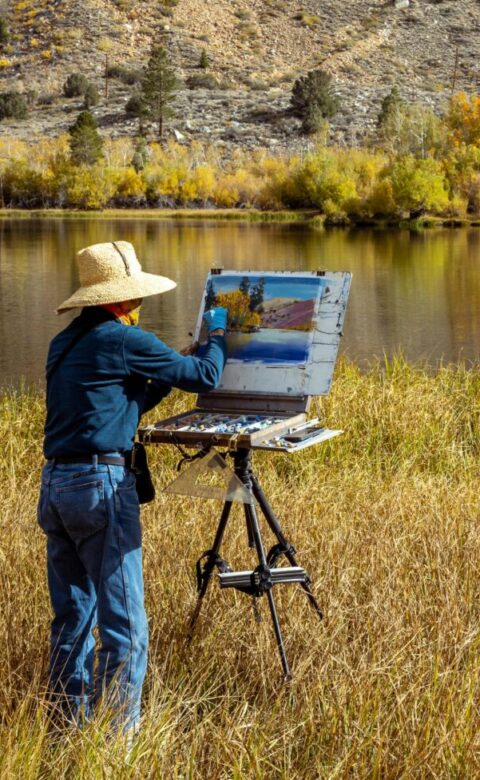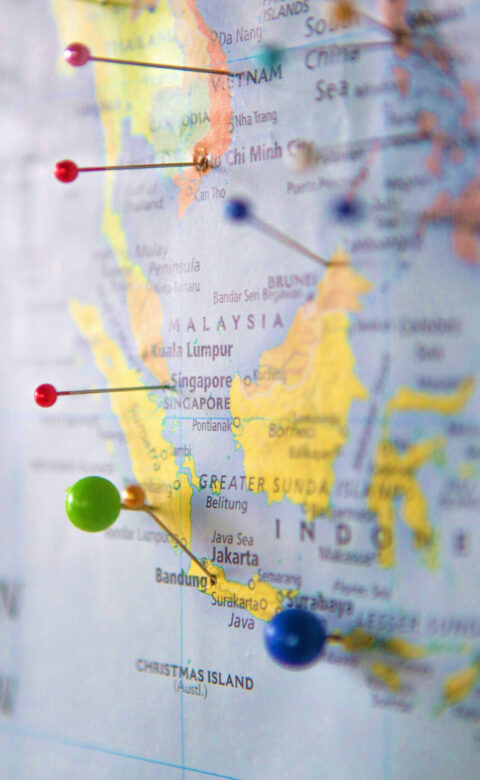Anyone who has done a bit of travelling — and hasn’t mastered every language spoken on the planet — will have come up against the occasional inability to understand the local people, or to be understood by them. But even when it proves challenging, communication is still a powerful tool to unite us.
There are times when it’s hard enough to be understood in our own culture, when we’re using our first language. Sometimes even our own families fail to grasp our meaning, so what hope have we got when we’re feeling like strangers in a strange land? What happens when we try to adapt to a new way of expressing ourselves in an unfamiliar environment?
If your birthplace and destination both happen to speak the same language, it may be easy to assume that communication will be straightforward. But to use just one example, as writer George Bernard Shaw famously said: “England and America are two countries separated by a common language.” As explained in great detail by an American linguist now resident in the UK, there are nearly endless ways to be tripped up when the local versions of English differ in the day-to-day.
Continuing with this thought, this is of course true of every English-speaking nation; local slang expressions may take a while to get used to, with regional variation within each country to boot. Even worse, some of the same expressions have very different, potentially quite embarrassing, meanings. What’s acceptable in New York may not be at all suitable in polite company in Newcastle or New South Wales, or vice versa. The most innocently intended remarks can be positively blush-inducing.
And the French spoken in Montréal isn’t quite the same as that of Marseille; nor is the Spanish in Córdoba identical to that of Cancún; and so on. But so much for the finer points of how the same language travels to different places around the globe. What about those times when you simply don’t speak what everyone around you is speaking? It’s easy to get a bit lost when you’re not part of the conversation, even when you’re trying your best to stay involved.
So whether it’s subtle shadings of meaning or a completely different tongue, what are some good tactics for communication when you’re unsure of the right way to say something (or simply at a loss for words in a new destination)?
- Do some research and reading before you go. Here at Resonate, we say this about virtually every travel situation — but be prepared and read up prior to departure! Investigate the local slang when visiting a country that speaks your first language, and learn a few new words (hello/goodbye, please/thank you, good morning/good afternoon/good evening for starters) when visiting a place where what’s spoken will be completely unfamiliar to your ears.
- Don’t make assumptions about people’s ability. They may share a language with you, and they may not. Respectfully asking whether they can communicate in a particular language, to see if you can establish common ground, is the only way to find out.
- Do take a tour with a bilingual guide. Whether it’s an old friend, new acquaintance or professional tour company, this will be an enormous help to give you an authentic feel for the place, its culture and its language as you pick up some words (and some valuable local tips). Do it early in your visit to get the maximum benefit.
- Don’t think you can ‘secretly’ have private chats in public. Just because you and your travelling companion speak a language not regularly heard where you are, that doesn’t mean that the person next to you on the train doesn’t understand; you might well be caught out saying something you shouldn’t. There’s no need to be impolite (in any language).
- Do be creative in getting your point across. Use your newly learned words, indicate with your hand gestures, body language and facial expressions, ask local people how they would say something if at all possible. Look up pictures on your mobile to show what you’re talking about, or point to your phone’s calendar/clock if you need to clarify crucial dates and times. It’s inevitably true that a picture is worth a thousand words, and sometimes it’s much easier to ‘show’ rather than ‘tell’.
- Don’t worry about being good enough. Jump right in! The smallest effort can go a long way towards demonstrating a willingness to engage and a friendly attitude. Flawless grammar and perfect pronunciation are not needed (or expected) for basic communication.
- Do ask for help if you need it. It’s only natural to find the language barrier difficult at times. As a traveller, if you’re really stuck, it’s better to ask for assistance than to be missing out on potentially important information, and along these same lines…
- Don’t hesitate to use an app to translate. While not perfect, they can be a big help, or even a literal lifesaver in an emergency. There are many to choose from, so you can decide what works for you.
And if you’re planning to stay for a while, you might want to take language lessons. Give yourself the opportunity to get properly immersed in the culture, and truly connect with your new friends and neighbours. If you’re in a group setting, learning together is always an excellent bonding exercise too, and ideal for establishing a social circle!
We all have a particular way of expressing ourselves, and it can be hard to change that. But a simple willingness to try is a gateway to improving communication, increasing your own knowledge, and quickly enhancing your immersion in the sounds — and stories — of a new place.







